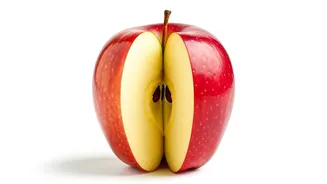Hidden Sugar Bombs
Many people are unaware that various common foods can lead to unexpected blood sugar spikes. These fluctuations can impact overall health and well-being.
Understanding how food affects blood sugar is crucial for managing health. This article sheds light on five widely consumed items that often contribute to elevated blood sugar levels, empowering readers to make more informed dietary choices. These everyday items, often perceived as benign, may contain significant amounts of hidden sugars or carbohydrates that the body quickly converts into glucose. This increase in glucose results in a surge in blood sugar, which is particularly concerning for individuals with diabetes or prediabetes but also matters for overall metabolic health. By becoming aware of these dietary contributors, individuals can adopt strategies to mitigate the impact of blood sugar fluctuations.
White Bread's Impact
White bread, a staple in many diets, can significantly raise blood sugar levels. Due to its refined carbohydrate content and low fiber, white bread is quickly broken down into glucose by the body. This rapid conversion causes a rapid spike in blood sugar. White bread lacks the fiber found in whole-grain options, meaning the glucose is absorbed more quickly. Eating white bread can lead to sharp increases in blood glucose, potentially triggering insulin resistance over time. Individuals trying to manage their blood sugar need to consider the impact of white bread on their diet, often opting for healthier alternatives like whole-grain or fiber-rich breads to help stabilize glucose levels.
Sweetened Beverages
Sugary drinks are a notorious source of rapidly absorbed sugars that can greatly increase blood sugar levels. Items such as soda, sweetened juices, and energy drinks are often packed with high fructose corn syrup and other added sugars. When consumed, the body quickly absorbs these sugars, causing a drastic spike in blood sugar. These spikes can be especially harmful to people managing diabetes or pre-diabetes as the rapid change can require a significant insulin response. Frequently consuming sweetened beverages can lead to chronic elevation of blood sugar, increasing the risk of developing insulin resistance and further health problems. Water, unsweetened tea, or naturally flavored water are viable substitutions for managing blood sugar and maintaining overall health.
Processed Breakfast Cereals
Many breakfast cereals are surprisingly high in sugar and refined carbohydrates. These options are often marketed as a quick and convenient breakfast option, but they can be a significant contributor to blood sugar spikes. The highly processed nature of these cereals means that they are easily digested, causing a rapid rise in blood glucose levels. Many cereals also lack fiber and protein, which could help regulate the absorption of sugar. This leads to quick spikes in blood sugar, followed by a sudden crash, that may cause a cycle of cravings. People who are conscious about managing their blood sugar levels should cautiously consider alternatives like oatmeal, or whole-grain cereals with low sugar content to avoid the blood sugar crash and support their health.
Flavored Yogurt
Flavored yogurt, despite its association with health, can often contain considerable amounts of added sugar. Many commercially available flavored yogurts include high amounts of sugar, which is used to enhance taste. The sugar content can quickly spike blood sugar levels following consumption. The addition of fruit or other ingredients, like granola, may also contribute additional sugar. This combination quickly converts to glucose in the body. If you’re managing your blood sugar levels, choosing plain, unsweetened yogurt and adding your own fresh fruit is a better solution. This allows for control over the sugar intake and provides better control of your blood glucose levels. Prioritizing plain yogurt over flavored options supports a healthier diet.
Fruit Juices
Fruit juices, though often considered healthy, can quickly spike blood sugar levels. Unlike whole fruits, juices lack the fiber that slows down the absorption of sugar. This means the naturally occurring sugars in the fruit are quickly absorbed, causing a spike in blood sugar. Additionally, many commercial fruit juices have added sugars, further exacerbating the problem. For people trying to control blood sugar, drinking the whole fruit is always more beneficial. The fiber present in whole fruits moderates the release of sugars into the bloodstream. If you are going to include fruit juices in your diet, choose 100% fruit juice, and control portion sizes to help regulate blood glucose levels.















